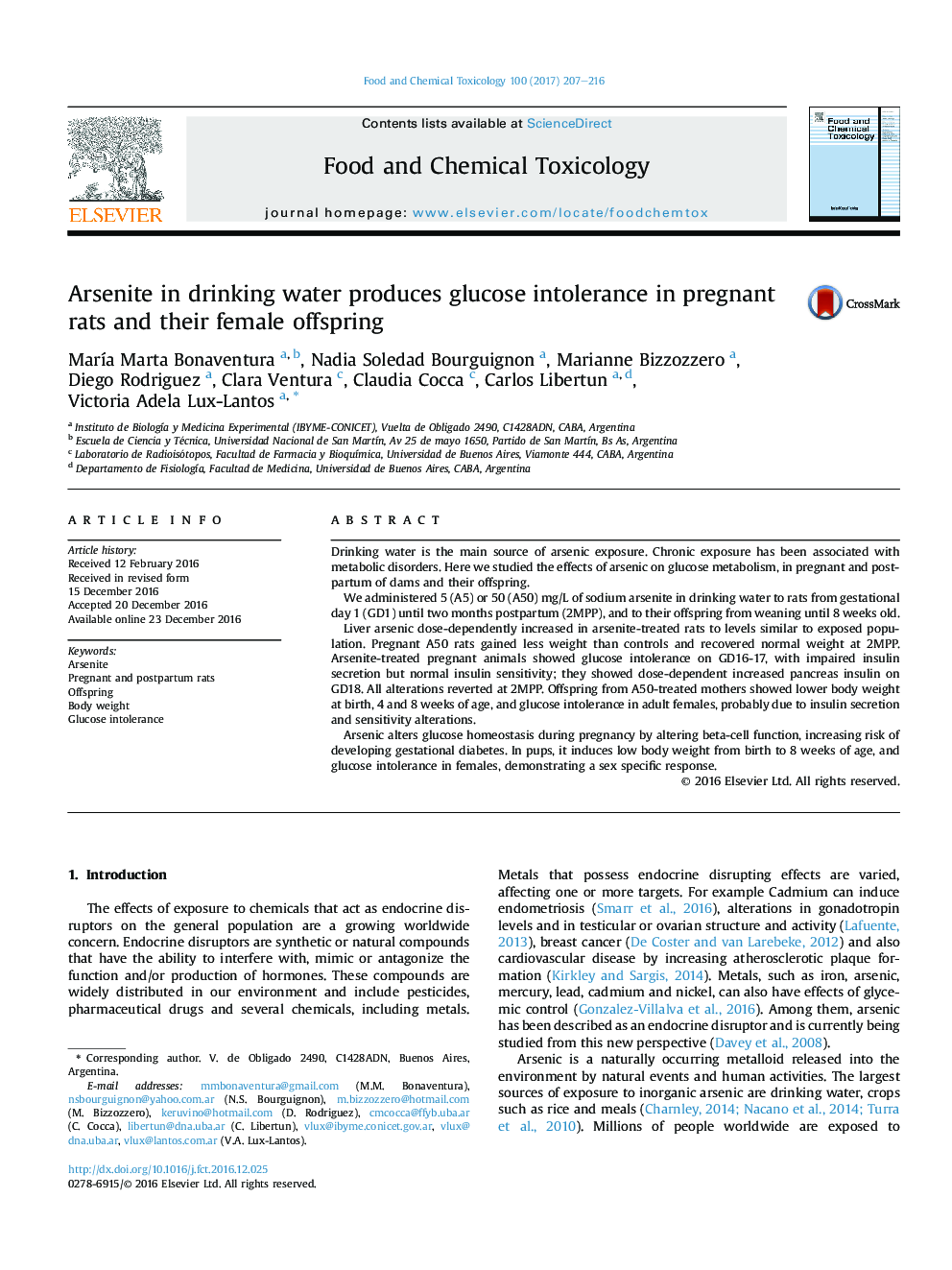| کد مقاله | کد نشریه | سال انتشار | مقاله انگلیسی | نسخه تمام متن |
|---|---|---|---|---|
| 5560288 | 1561745 | 2017 | 10 صفحه PDF | دانلود رایگان |
- Arsenite alters body weight in rats during pregnancy and postpartum.
- Arsenite alters body weight in offspring from birth until 8 weeks age.
- Arsenite produces glucose intolerance/impaired insulin secretion in pregnant rats.
- Arsenite induces glucose intolerance in female offspring.
- Arsenite induces oxidative stress in liver of female offspring.
Drinking water is the main source of arsenic exposure. Chronic exposure has been associated with metabolic disorders. Here we studied the effects of arsenic on glucose metabolism, in pregnant and post-partum of dams and their offspring.We administered 5 (A5) or 50 (A50) mg/L of sodium arsenite in drinking water to rats from gestational day 1 (GD1) until two months postpartum (2MPP), and to their offspring from weaning until 8 weeks old.Liver arsenic dose-dependently increased in arsenite-treated rats to levels similar to exposed population. Pregnant A50 rats gained less weight than controls and recovered normal weight at 2MPP. Arsenite-treated pregnant animals showed glucose intolerance on GD16-17, with impaired insulin secretion but normal insulin sensitivity; they showed dose-dependent increased pancreas insulin on GD18. All alterations reverted at 2MPP. Offspring from A50-treated mothers showed lower body weight at birth, 4 and 8 weeks of age, and glucose intolerance in adult females, probably due to insulin secretion and sensitivity alterations.Arsenic alters glucose homeostasis during pregnancy by altering beta-cell function, increasing risk of developing gestational diabetes. In pups, it induces low body weight from birth to 8 weeks of age, and glucose intolerance in females, demonstrating a sex specific response.
Journal: Food and Chemical Toxicology - Volume 100, February 2017, Pages 207-216
